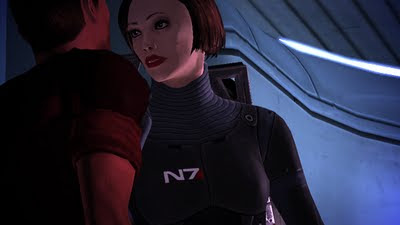
I would like to take a moment to applaud GOG.com. Yes everyone is aware that I'm extremely in love with their company, but consider for a moment the legion of fans from around the world that flock to this retailer’s website every day to congregate on its boards. You have to wonder what a retailer like that is doing differently. In GOG's case the answer is easy. They are clearly completely off their rocker. As they build up to tomorrow's highly anticipated announcement of a new developer (Lucas Arts, EA, Microsoft Games Studios, Square Enix or 2K), the GOG marketing team has been releasing an online comic series about the Evil Dr. M. (Think about it for a second). The Evil Dr. M infiltrated GOG's offices in a YouTube video last September, and apparently his devious actions have not stopped. He is currently on the run (but where?) and has been leaving casualties in his wake. The most notable casualty was that of the beloved French Monk. (Thankfully the French Monk's demise has not stopped him from communicating with GOG-ers from the afterlife, as he dropped in on his own memorial post not too long ago to say hello.) Every comic page holds cryptic textual and visual clues about the next developer and games to soon be available via GOG, and speculation is running rampant as fans pick every little detail apart. GOG-ers can also track Dr. M's movements via his twitter feed (@TheEvilDrM) for clues regarding the evil mastermind's location and dastardly plans.
On one hand, this is a lot of trouble for one company to go to just to make a single announcement. On the other hand, it is pure genius. GOG, like its sister company CD Projekt RED, has always taken a very strong anti-DRM stance. They stay extremely connected with their customers, they have the most responsive customer service around, they utilize media that their customers connect with, and they embrace the absurdity of gaming and geekdom whole heartedly. Their transparency as a company is unparalleled. They are not afraid to admit to their mistakes and when they seriously mess up, GOG goes above and beyond to make amends. Above all they have a wacky, infectious humor that makes you wonder what the heck they were thinking. More often than not GOG's staff seems to be having more fun with the company's marketing games then their fan base does. All things considered, that is saying something.
The Dr. M comic series is just one piece in a puzzle of increasingly unique and inventive marketing schemes. Sure the site has done the "post [message] on twitter and enter a drawing" type events, but it is the more imaginative ones which make site visitors pay attention.
1) Last fall GOG suddenly went off line without notice and left a coyly written note in its stead. Users were rightly outraged, especially when they realized that it was a poorly advised marketing stunt, and for any other company that fallout could have been detrimental. Thankfully, realizing their mistake, GOG took great strides to make amends. They returned with fanfare, a free game, and videos. Oh the videos. Remember The French Monk earlier that Dr. M killed off? That "monk" was the company's Managing Director Guillaume Rambourg dressed as a stereotypical RPG monk. In a very peculiar, and embarrassingly cheesy (yet amusing) YouTube video he and another employee confessed and atoned for the website's sins (i.e. the ill-advised shut down). Considering the amount of love that people have for Rambourg's character, killing him off in the latest comic was pure genius. Now everyone is waiting around on pins and needles to find out when he will come back ... and how. If you miss him in the meantime though,
the website released a PaperCraft in his memory.
2) A couple of months ago, the website initiated a four part Quest wherein they asked GOG-ers to be Heroes and spread the word about their website. In this month long campaign they asked the fans, among other things, to pick an RP class, design a Neverwinter's Night module entitled "The DRM Monster and the Treasure of GOG", and write reviews. The grand prize? An
actual, full-sized sword and shield. The shield, of course, came emblazoned with "gog.com" upon its surface.
In the end we all know that the goal of advertising is to convince customers to buy things they didn't know they needed. While this is certainly the root of GOG's creative marketing campaigns, the end result is something even bigger and less temporary. As a company they aren't just convincing gamers to buy their product, they are convincing gamers to buy into an experience. Instead of just the customer's money, GOG also earns the customer's affection. Instead of just a faceless group of individuals, GOG is a group of people with names and faces that their fans recognize and associate with. With all the cold, impersonal companies out there on the web GOG is an absolute gem. Everyone knows that the bottom line is important to the company's continued existence, but GOG realizes that an intense focus on this bottom line is not enough to make them stand out. It's nice to see someone remember what customer loyalty is all about.
We could, of course, also just go with my first theory that Good Old Games is simply insane. They would have to be crazy to come up with some of the things they have. In the words of Australian GOG-er Virama, "Stop using drugs boys and get back to work...."



